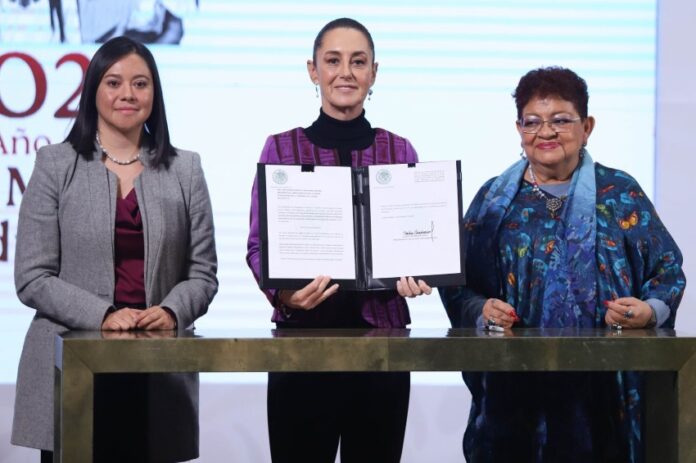At her Thursday morning press conference, President Claudia Sheinbaum responded to the United States’ designation of six Mexican cartels as foreign terrorist organizations by announcing she was sending a constitutional reform proposal to Congress to bolster the protection of Mexico’s sovereignty.
Among other issues, Sheinbaum also spoke about United States President Donald Trump’s decision to launch an anti-drug campaign.
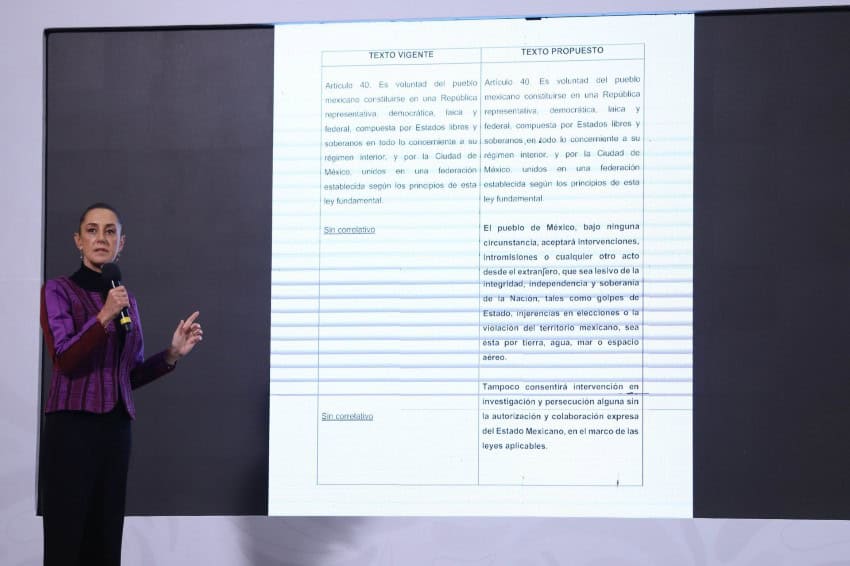
Sheinbaum: Designation of cartels as terrorists not an ‘opportunity’ for US to ‘invade our sovereignty’
On the day the United States’ designation of six Mexican cartels as foreign terrorist organizations took effect, Sheinbaum declared that Mexico’s sovereignty is not up for negotiation.
The terrorist designations of the Sinaloa Cartel, the Jalisco New Generation Cartel and other Mexican criminal organizations “can’t be an opportunity for the United States to invade our sovereignty,” she said.
“They can name cartels as they choose, but with Mexico it’s collaboration and coordination, never subordination, no interference or invasion,” Sheinbaum said.
In that context, the president announced she was submitting a constitutional reform proposal to Congress.
Sheinbaum read out a proposed addition to Article 40 of the Mexican constitution:
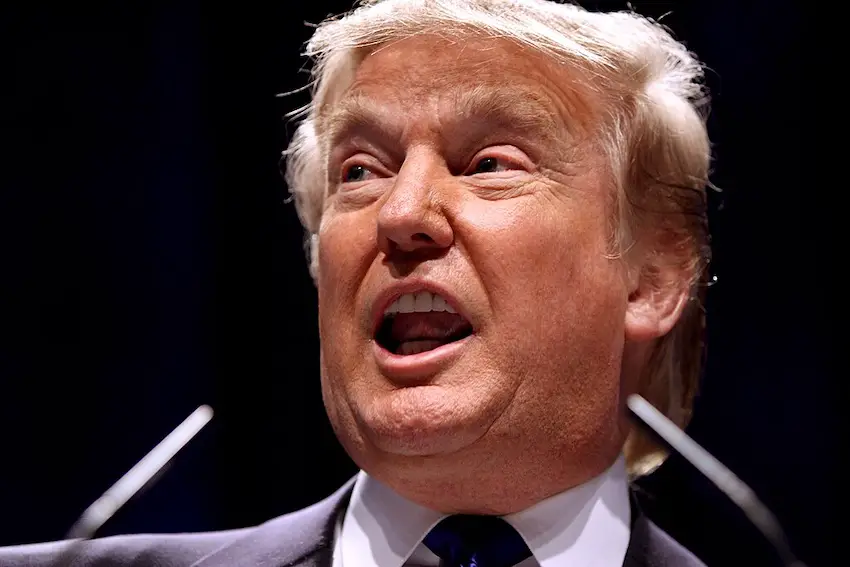
“The people of Mexico, under no circumstance, will accept interventions, interference or any other act from abroad that is harmful to the integrity, independence and sovereignty of the nation, such as coups, interference in elections or violation of Mexican territory whether it’s by land, water, sea or air space.”
“Nor will they allow intervention in investigations or any pursuit [of a suspect] without the authorization and express collaboration of the Mexican state within the framework of applicable laws.”
Sheinbaum also read out a proposed addition to Article 19 of the Mexican constitution.
“The most severe possible punishment as well as the precautionary measure of preventive prison will be imposed on any national or foreigner involved in the manufacture, distribution, transfer, transport or illicit admission to national territory of weapons, and on any foreigner who carries out activities on the margin of the law associated with the second and third paragraphs of article 40 of this constitution.”
Therefore, any foreign agents — from the CIA or DEA, for example — who enter Mexico without the authorization of the Mexican government would be subject to arrest, imprisonment before trial and harsh penalties if convicted.
“These are the two modifications to the Constitution that we’re sending [to Congress],” Sheinbaum said.
“What does this mean? We collaborate, we coordinate, we work together [with the United States], but there is no interference, no violation of sovereignty,” she said, adding that “this is what we want to be made clear” in light of the United States government’s designation of six Mexican cartels as foreign terrorist organizations.
Sheinbaum also made it clear that Mexico, like the United States, is determined to combat drug trafficking, organized crime groups and violence.
She also said that the Mexican government would broaden its lawsuit against U.S. gun manufacturers and distributors in consideration of the designation of six cartels as terrorist groups.
“There will be a broadening of this lawsuit due to the complicity [with terrorists] of those that sell weapons that are brought into our country,” Sheinbaum said.
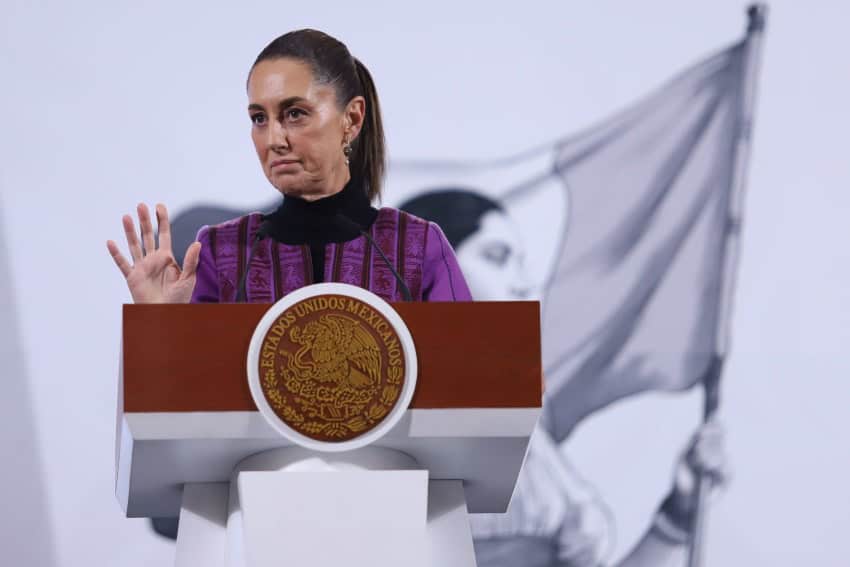
Sheinbaum responds to Trump’s decision to launch anti-drug campaign
A day after Trump thanked her for giving him the idea to launch an anti-drug campaign, Sheinbaum returned the favor.
“I obviously thank him for the mention,” she said.
“I think that it is something important,” Sheinbaum continued, referring to the U.S. anti-drug campaign.
“We have always said that the trafficking of drugs to the United States has to do with drug use in the United States, that it’s not just an issue for Mexico. … There wouldn’t be distribution of drugs to the United States if there wasn’t drug use in the United States,” she said.
The decision to launch an anti-drug campaign is “recognition from the United States president of what we call attention to the causes,” Sheinbaum said.
“… It’s recognition that they have to attend to the issue of drug use there,” she said.
“And I think that’s very important. … So I think this announcement that President Trump made yesterday is very important,” Sheinbaum said.
Government seeks agreement with gas stations to limit profits
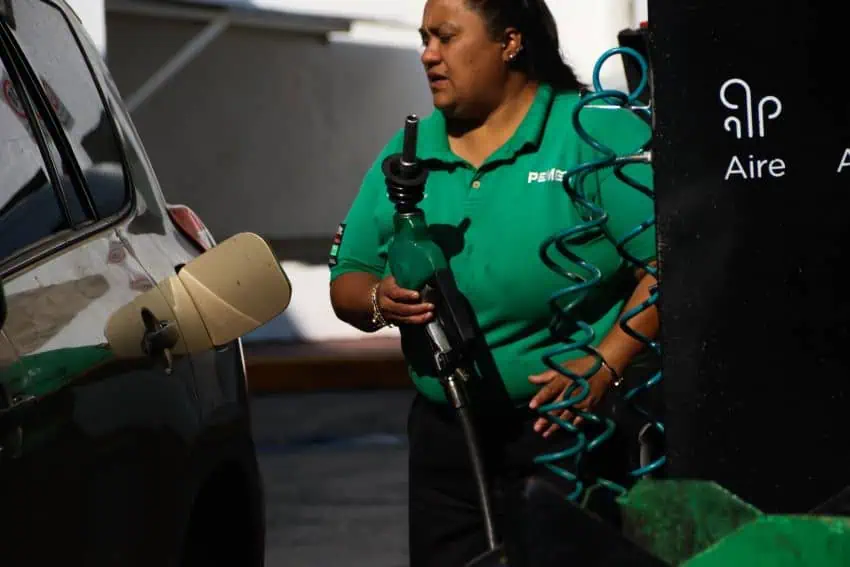
A reporter asked the president whether the government was prepared to establish a price cap for gasoline — possibly 24 pesos per liter — as part of efforts to keep inflation under control.
“This issue with the price of gasoline — what is not regulated, let’s say, is the profits of a private company,” Sheinbaum said.
“The Pemex gas stations are in fact Pemex franchises, they’ve been operated privately for a long time, and Pemex also sells [fuel] to non-Pemex gas stations, and apart from that, there is imported gasoline,” she said.
“Before entering into a scheme of fixing prices, we think that we can reach a voluntary agreement [with gas stations]. We did it [with the private sector] for the basic basket [of essential goods],” Sheinbaum said.
“So first we want a voluntary agreement, in which they themselves, the gas station owners, moderate the amount of pesos they earn for each liter they sell. So that is what we are working on,” she said.
“Ideally what we want is this voluntary agreement. If the voluntary agreement doesn’t happen, then we could think about other ways, but I believe — because of the meetings we’ve already had — that it is possible to reach one,” Sheinbaum said.
“… We still have next week to seal [the deal] and everything is going well, so I expect that we’ll be able to sign it very soon,” she said.
Mexican and US forces to collaborate more closely on cross-border security issues
Sheinbaum said that Defense Minister Ricardo Trevilla Trejo and General Gregory M. Guillot, Commander of the U.S. Northern Command, had a “very good, very respectful conversation.”
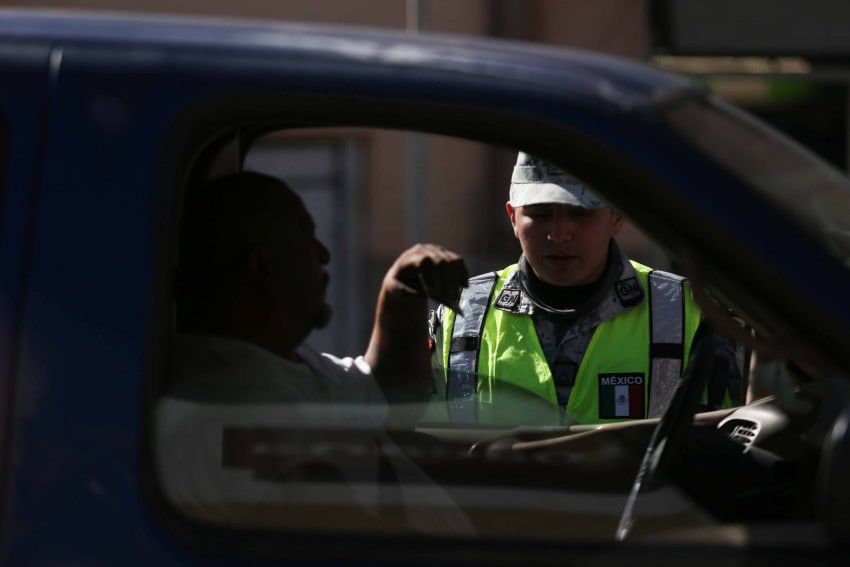
The U.S. Northern Command said in a statement on Wednesday that the two men “met recently to discuss cooperation to increase security along the Mexico and U.S. border.”
“The conversation resulted in the formulation of a Joint Statement of Understanding regarding cooperative activities along the border, to include coordinated patrols on their respective sides of the border, increased information sharing, and methods for immediate communications,” the statement said.
“The conversation and agreements emphasize that each country will respect the sovereignty of the other,” it added.
Sheinbaum said that U.S. security forces could share information with Mexican forces about arms trafficking, for example, “or vice versa in the face of other conditions,” such as the northward flows of drugs or migrants.
“Above all, communication and coordination in these cases was spoken about” during the meeting between Trevilla and Guillot, she said.
By Mexico News Daily chief staff writer Peter Davies (peter.davies@mexiconewsdaily.com)
